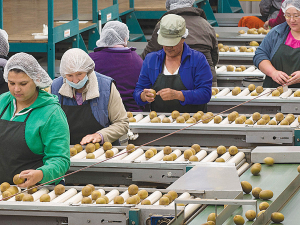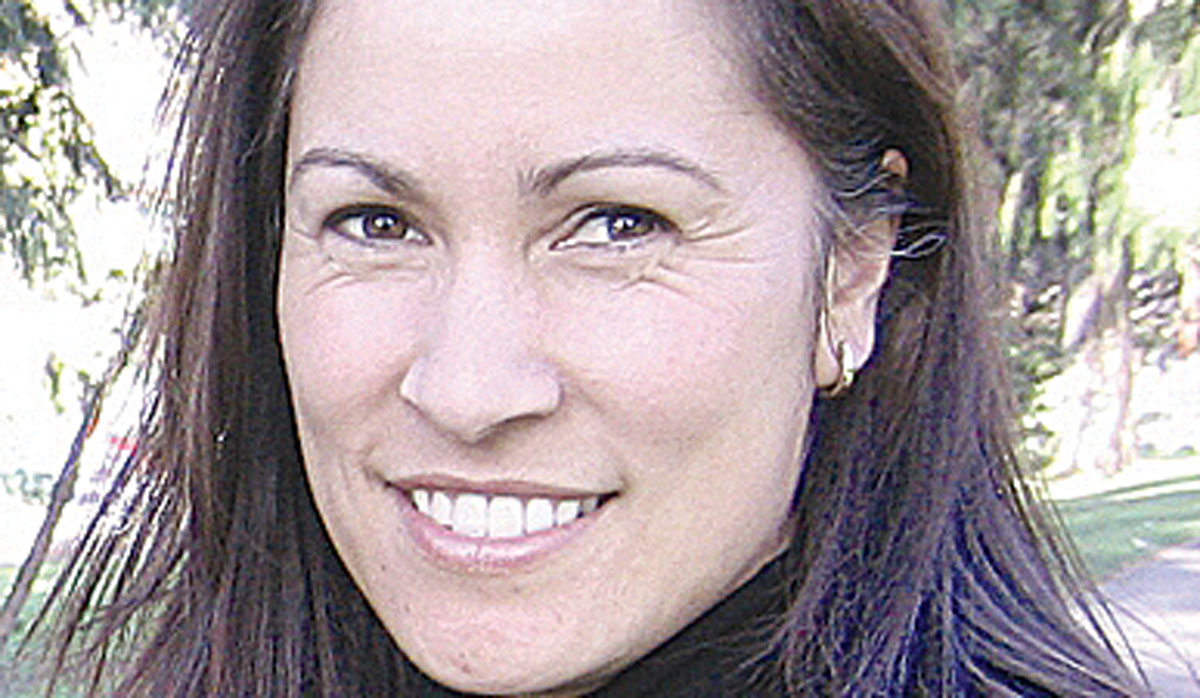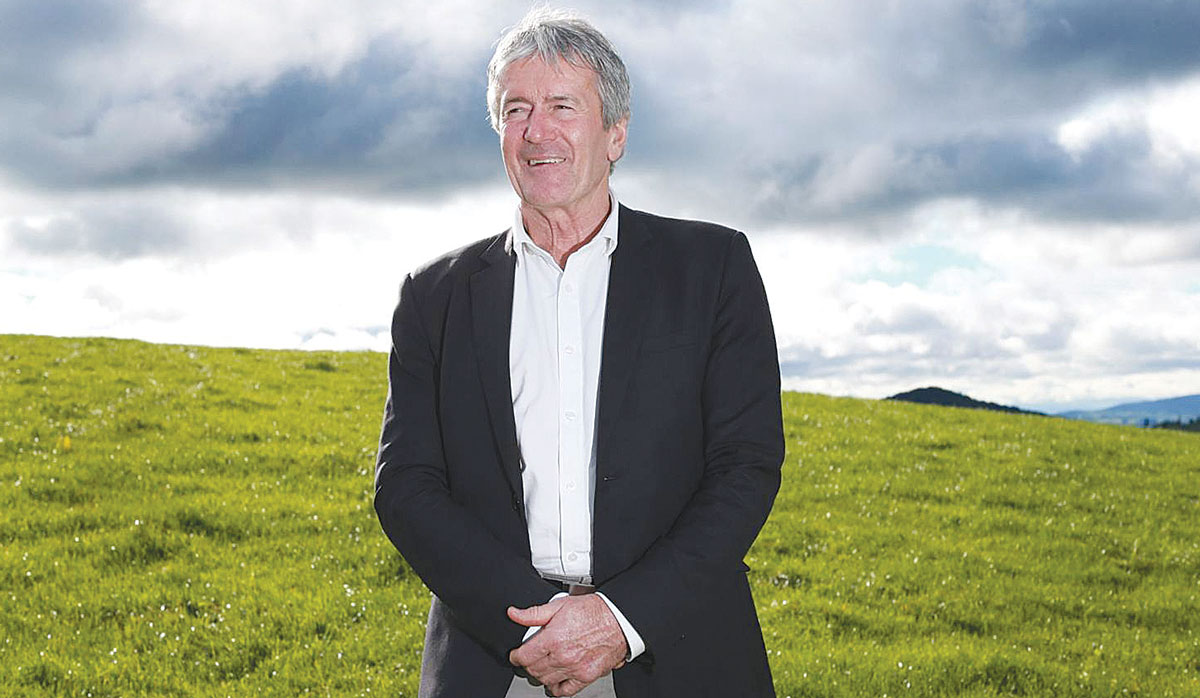The Profile: Aaron Jay & Hortus
Growing up in an English council estate, Aaron Jay had a simple life plan – join the army, earn some money, get ahead.
 Lawyer Lisa Meto Fox wants a Royal Commission of Inquiry into the way the RSE scheme is run - similar to the inquiry that Australia has just conducted on its scheme.
Lawyer Lisa Meto Fox wants a Royal Commission of Inquiry into the way the RSE scheme is run - similar to the inquiry that Australia has just conducted on its scheme.
A scheme allowing Pacific workers short-term work on New Zealand orchards and farms is under fire from a human rights lawyer.
Lisa Meto Fox claims the Pacific Recognised Seasonal Employer (RSE) scheme is an example of modern slavery.
A lawyer workingwith Pacific island communities on human rights issues, Fox told Hort News that the New Zealand Government must reform or abolish the RSE scheme.
In February, the NZ Government increased the quota of RSE workers by 1,600, bringing it up to 16,000 people a year. Most of these workers are now in the country.
Fox claims the increase in quota will only allow more exploitation by some employers.
"I think the Government needs to ensure that the workers who come here on the RSE are paid decently and enjoy the same basic human rights and freedoms any person in NZ can expect," she says.
"Until they have reformed the scheme and provide adequate inspections to enforce the reforms then they should not be allowing employers to recruit additional workers."
Fox claims that many RSE workers' movements and behaviours outside of work are being controlled by their employer - something no NZ citizen or person on an ordinary work visa would be subject to.
"For example, no visitors allowed at their accommodation, having curfews, not being allowed to stay away overnight from employer accommodation during their personal time, couples not being provided accommodation where they can share a room, not being allowed to drink alcohol during their personal time outside of work hours. The list goes on."
Fox believes some workers end up paying a high price for coming to NZ.
She says workers having no income for the first month or sometimes longer as they have to work to pay off their debt to the employer for the airfares, vaccinations and visa.
Fox says she has heard of reports of some employers deducting $160 per person for three bunk beds in each room.
"Automatic deductions for things like 'lost cutlery' whether or not the cutlery is actually lost and deductions for travel to and from the farm.
"Sometimes these so-called costs charged to the worker are higher than the actual cost - so the employer is making a profit off providing this 'service'."
Fox says we often read about are the stories of the great successes of this scheme.
"Stories of how generous the Kiwi employers are in helping an RSE worker earn more money here than they would back home.
"But little is told of the restrictions, the patronisation, the lack of options, the pain that they endure."
She claims that RSE workers have no real way to make complaints about their treatment at the hands of their employers.
"If they do complain they could not only face being blacklisted themselves, their families, villages and countries may even face the consequence of not being offered work next season and being labelled troublemakers."
Fox wants a Royal Commission of Inquiry into the way the scheme is run - similar to the inquiry Australia has just conducted on its RSE scheme.
HortNZ Responds
HortNZ chief executive Nadine Tunley told Hort News that there is no tolerance for poor employers under the Recognised Seasonal Employer (RSE) scheme.
Tunley says RSE employers would be putting their accreditation at risk through non-compliance.
“The New Zealand Government, in conjunction with Pacific countries and the New Zealand horticulture and viticulture industries, is reviewing the policy around the scheme, to ensure that it continues to provide economic and development benefits to all parties in an ethical manner,” she says.
Tunley also points out that many RSE employers have long-term relationships with their workers and the villages from which they come.
“Pastoral care is huge aspect of the scheme,” says Tunley.
“Many employers have people dedicated to this role.”
She adds that the Government sets minimum wages for RSE workers along with maximum deduction levels. Accommodation must meet the Government’s standards.
 |
|---|
|
Hort NZ chief executive Nadine Tunley. |
“Many employers have invested in purpose-built accommodation.”
Tunley says the Ministry for Business, Innovation and Employment (MBIE) is the lead Government agency for the RSE scheme.
She notes that high commissions of Pacific countries are closely involved in the running of the scheme.
“The Government sets the rules for the scheme and monitors and formally reviews the scheme. Questions about the scheme’s performance need to be directed to MBIE,” she says.
Minister Responds
Agriculture Minister Damien O'Connor says there is no place for dodgy operators in the Recognised Seasonal Employer (RSE) scheme.
He says any employer not valuing the contribution of Pacific workers should lose the right to be part of the scheme.
He was commenting on claims made to Rural News Group's Hort News by Lisa Meto Fox on the poor treatment of Pacific workers.
O'Connor say there have been stages through the RSE scheme's evolution where some employers had to be investigated. But O'Connor sayshe hasn't received any recent complaints about ill-treatment of workers. He says the Government and farming sector appreciates and understands the value of the scheme for all countries involved.
"I don't know of any specific examples of poor treatment of workers but if it's happening, it must stop immediately," he told Rural News.
 |
|---|
|
Agriculture Minister Damien O'Connor |
The RSE scheme, launched in 2007, allows the horticulture and viticulture industries to recruit workers from overseas for seasonal work when there are not enough New Zealand workers.
The cap on workers was set at 5,000 places when the scheme was established in 2007, but the success of RSE has led to increased demand from employers.
The Government recently made the decision to increase the cap to 16,000 for 2021-22.
The RSE policy allows arrivals from the following countries: Fiji, Kiribati, Nauru, Papua New Guinea, Samoa, Solomon Islands, Tonga, Tuvalu and Vanuatu. People employed under the RSE policy may stay in New Zealand for up to seven months during any 11-month period.
New Zealand and Chile have signed a new arrangement designed to boost agricultural cooperation and drive sector success.
New DairyNZ research will help farmers mitigate the impacts of heat stress on herds in high-risk regions of the country.
Budou are being picked now in Bridge Pā, the most intense and exciting time of the year for the Greencollar team – and the harvest of the finest eating grapes is weeks earlier than expected.
The Real Estate Institute of New Zealand (REINZ) has released its latest rural property report, providing a detailed view of New Zealand’s rural real estate market for the 12 months ending December 2025.
Rural retailer Farmlands has released it's latest round of half-year results, labeling it as evidence that its five-year strategy is delivering on financial performance and better value for members.
OPINION: "We are back to where we were a year ago," according to a leading banking analyst in the UK, referring to US president Donald Trump's latest imposition of a global 10% tariff on all exports into the US.